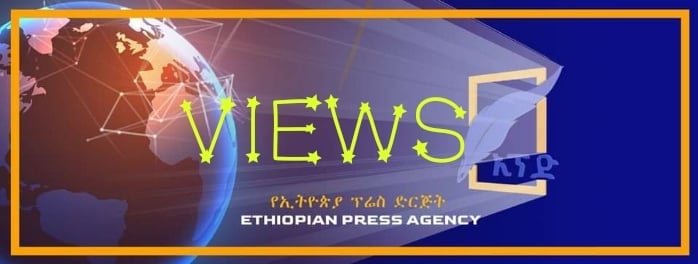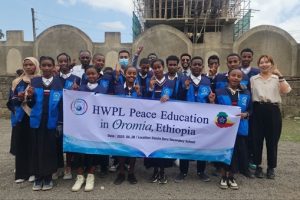
BY SEMU MOGES
(Water Resources Professional Engineer, Ph.D.)
On Thursday, the 7th of July, 2021, United Nations Security Council is to hold an extraordinary meeting regarding Ethiopia’s massive hydroelectric dam known as Grand Ethiopian Renaissance Dam (GERD). Despite its vast experiences across many matters of global governance, it’s an established fact that the UN has neither the mandate nor the expertise to discuss and resolve issues of transboundary water resources that are highly technical in nature.
Sadly, it’s resolve to host the meeting in such a topic, may open up a pandora box for countries to forward all water grievances to UNSC as opposed to utilizing regional and continental organizations to solve any misunderstandings that may occur. Unfortunately therefore, UNSC’s meeting to discuss GERD matters undermines regional cooperative organizations and sub-regional groupings’ ability to resolve their challenges within the regions. As a sad consequence of an effort of globalizing a regional issue, regional security will be relegated to the bottom and opens up a door for bullying countries outside of the basin to interfere in issues beyond water.
The emergence of bully non-regional countries and groupings also ushers a new neocolonialist agenda, which is undesired by developing countries at large. United Nations must observe such consequences in Africa and elsewhere.
Now that the UNSC slotted time to discuss on the issue of Grand Ethiopian Renaissance Dam (GERD), however, its most important body, the UNSC, must consider the following issues of concern that remain undermined and under-discussed. Doing so, will at least inform the UN body the magnitude and scale of the challenges on the table. Here are the issues:
First: If UN must sit to discuss a transboundary water case, the first matter must be to discuss, question and hopefully reject the 1959 bilateral agreement that demeans human existence in the basin outside of the Sudan and Egypt, two countries that benefited from this colonial era treaty. The agreement states ‘Agreement between the United Arab Republic and Sudan and for full utilization of the Nile waters.’
Many research scientists indicate to rectify this injustice over the last 50 years. Whittington, Waterbury, and McClelland (1994) recognized the non inclusive nature of the agreement and proposed revision of 1959 agreement to include Ethiopia. The 1959 agreement between Egypt and Sudan continued to be a security issue for the entire Nile basin at large, and particularly Ethiopia.
Second: Due to UN negligence of its charter, the 1959 total control of Nile agreement between Egypt and Sudan (excluding Ethiopia that contributes 86% of the Nile) was legitimized by the two signatories and rejected by those many countries that did not participate in the process. The consequence is that in 1980s, while Nile is flowing in their backyard, millions of people perished from drought/famine in the Nile basin part of Ethiopia. If UN must discuss, it must discuss compensation mechanisms for the lost life and economy of Ethiopia due to the international organization’s negligence when the total transfer of control of Nile to Egypt and Sudan is signed.
Third: If UN must sit to discuss a transboundary water case, it must advise Egypt and Sudan to return to Cooperation Framework Agreement (CFA), which is part of the Nile (Abay) basin initiative (NBI, n.d.) that was ingeniously concluded between all riparian countries of the Nile including Egypt and Sudan (except Article 14b). The CFA was rebuffed by Egypt and Sudan in 2010. Lack of comprehensive Nile agreement is therefore the source of all regional insecurities.
Fourth: The ‘big’ and ‘small’ countries in the UN must rise above self-interest and work for collective human interest and destiny for a better world. The issue of Nile must not be about the interest of one country or another. Ultimately, it is about a human right issue of all individuals and their respective countries in the basin. One Ethiopian is no less a human-being than one individual Egyptian. One Egyptian is no less a human than one Ethiopian as well. There is enough water in the basin for the peoples of Nile countries that fulfills the human basic right and beyond. Egypt is internationalizing the Nile water, especially by transferring the water of the Nile outside of the basin countries.
It is now a fact that the emergence of Arab league as guardian of the Nile water has become as regional security treat to Africa. This is what the UN must discuss.
Fifth: Unilateralism is the norm than exception by the downstream countries of Egypt and Sudan. But when it comes to GERD, Ethiopia managed to break the unilateralism by inviting Sudan and Egypt to a negotiating table since 2011. Egypt and Sudan signed 1959 agreement unilaterally. Egypt constructed high Aswan dam that holds almost twice the Entire Nile flow unilaterally. Sudan constructed recent Merowe dam unilaterally. Both countries shared no information for Ethiopia or Nile basin countries on their actions. In contrast, Ethiopia broke the regional trend by sharing all information on GERD dam including 150 design reports, inviting negotiating on the filling and operation of GERD.
As shown in UNSC submitted letter by Egypt and Sudan, the filling part of the negotiation is 100% agreed. The UNSC must advise countries to sign the agreed part of the negotiation and encourage facilitation of information exchange for the 2nd filling of the dam. As The foreign Affairs of Egypt confirmed and the current hydrology in the Nile confirms, the 2nd filling of GERD does not affect Egypt. The UNSC must encourage Ethiopia and Sudan for immediate coordination and exchange of information on the 2nd filling of the dam.
Sixth: The larger issue of the Nile (mainly Eastern Nile) is beyond the issue of GERD dam. Instead, it is about recognizing the shared nature of the Nile, equitable and reasonable utilization of the shared resources for the life, dignity, and prosperity of Eastern Nile countries. There is no golden rule to utilize the shared resources of the Nile water equitably and reasonably. However, there is a framework to objectively quantify such provisions. The UNSC must encourage countries to enter into water sharing agreement/benefit sharing agreement based on the International Water Convention.
Finally, the UNSC should recognize that there is more water supply in the Nile basin. There is a room to save additional water from wasted irrigation systems in Egypt and Sudan. UNSC must also encourage countries to get out of politicizing Nile and resolve the challenges of utilizing shared resources equitably and reasonably.
In sum, UNSC’s upcoming July 7, 2021, meeting may become a day that gave an opportunity to such an organization to promote Justice, equity and framework for regional integrity. Otherwise, it will remain an organization that continues to entertain only the interests of super powers and not the rights of people across economically poorer and weaker states.
(Source: East Africanist)
THE ETHIOPIAN HERALD JULY 8/2021



